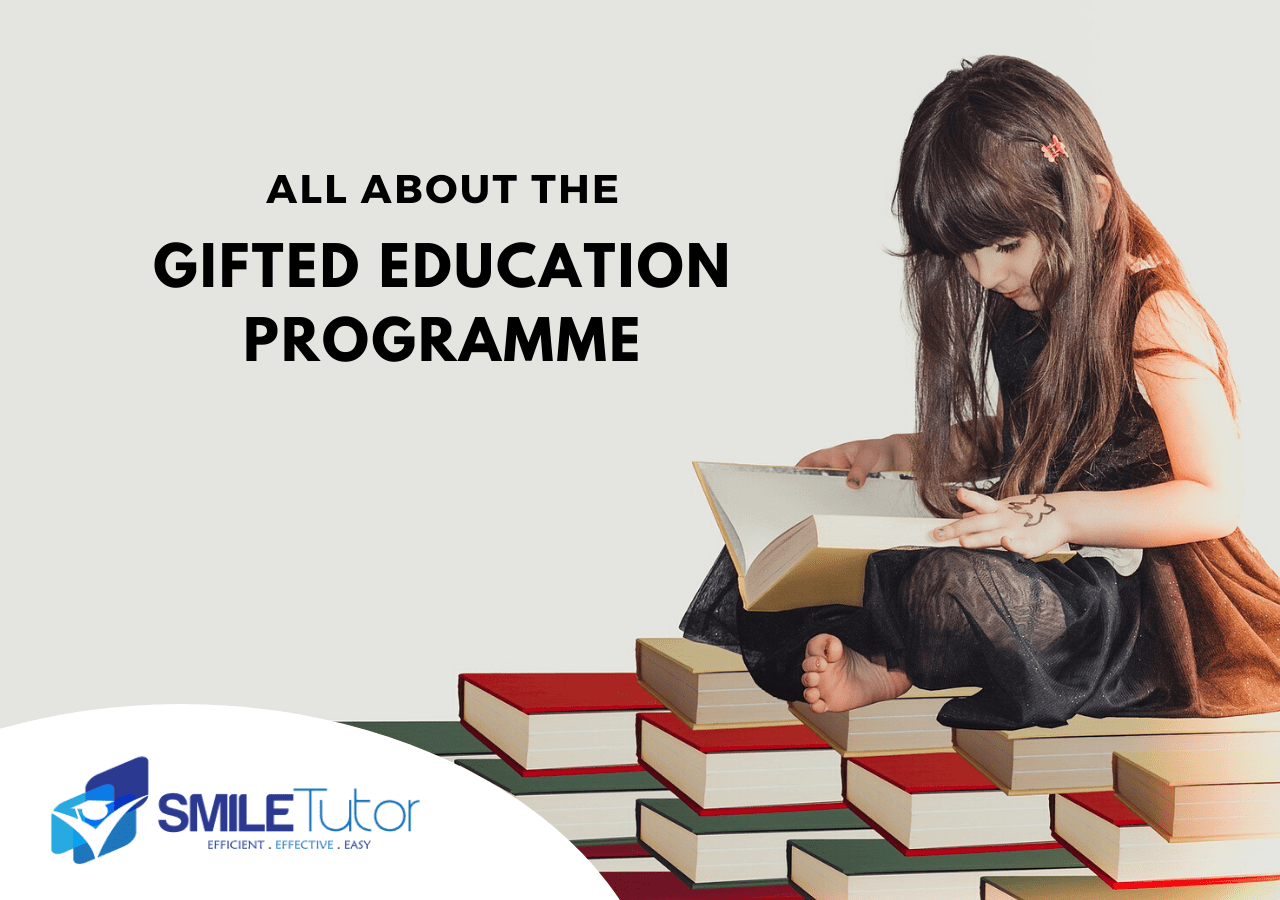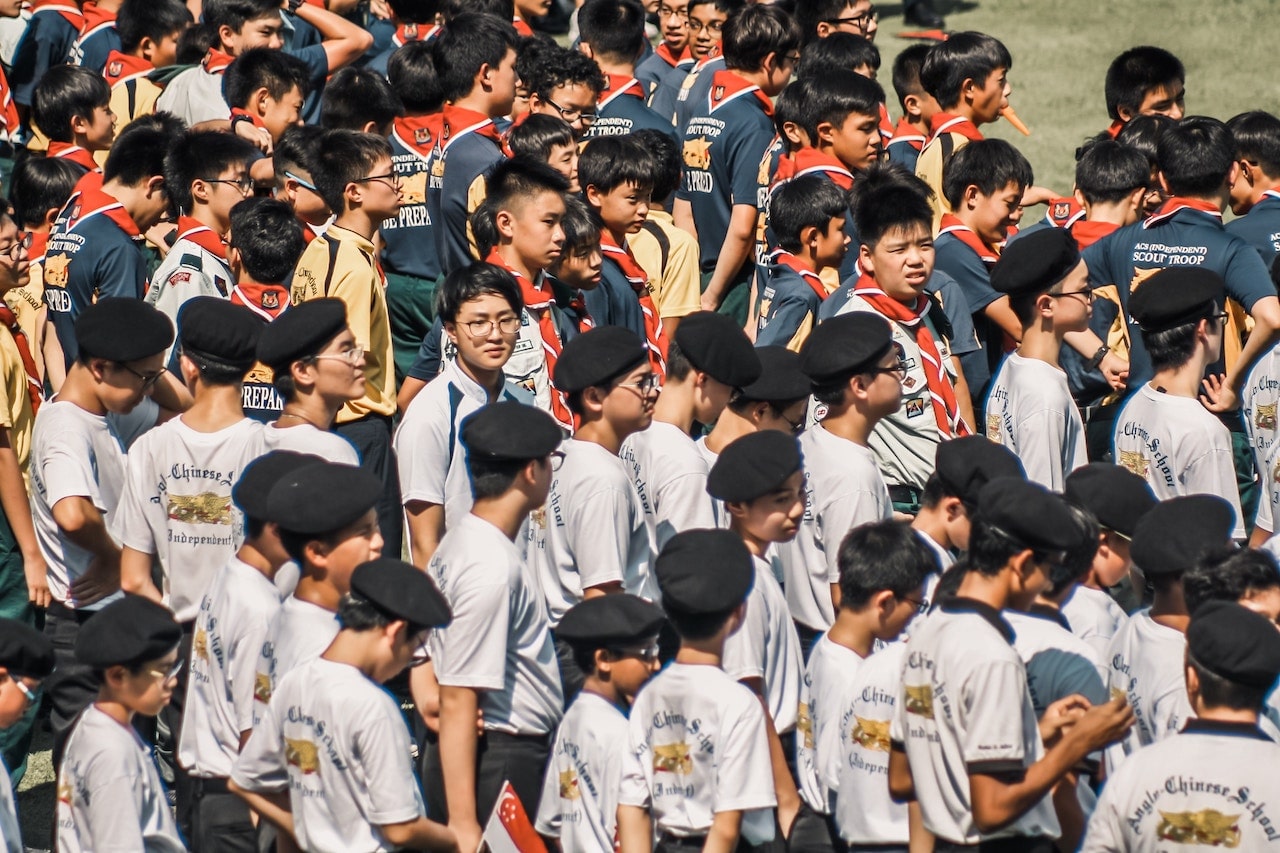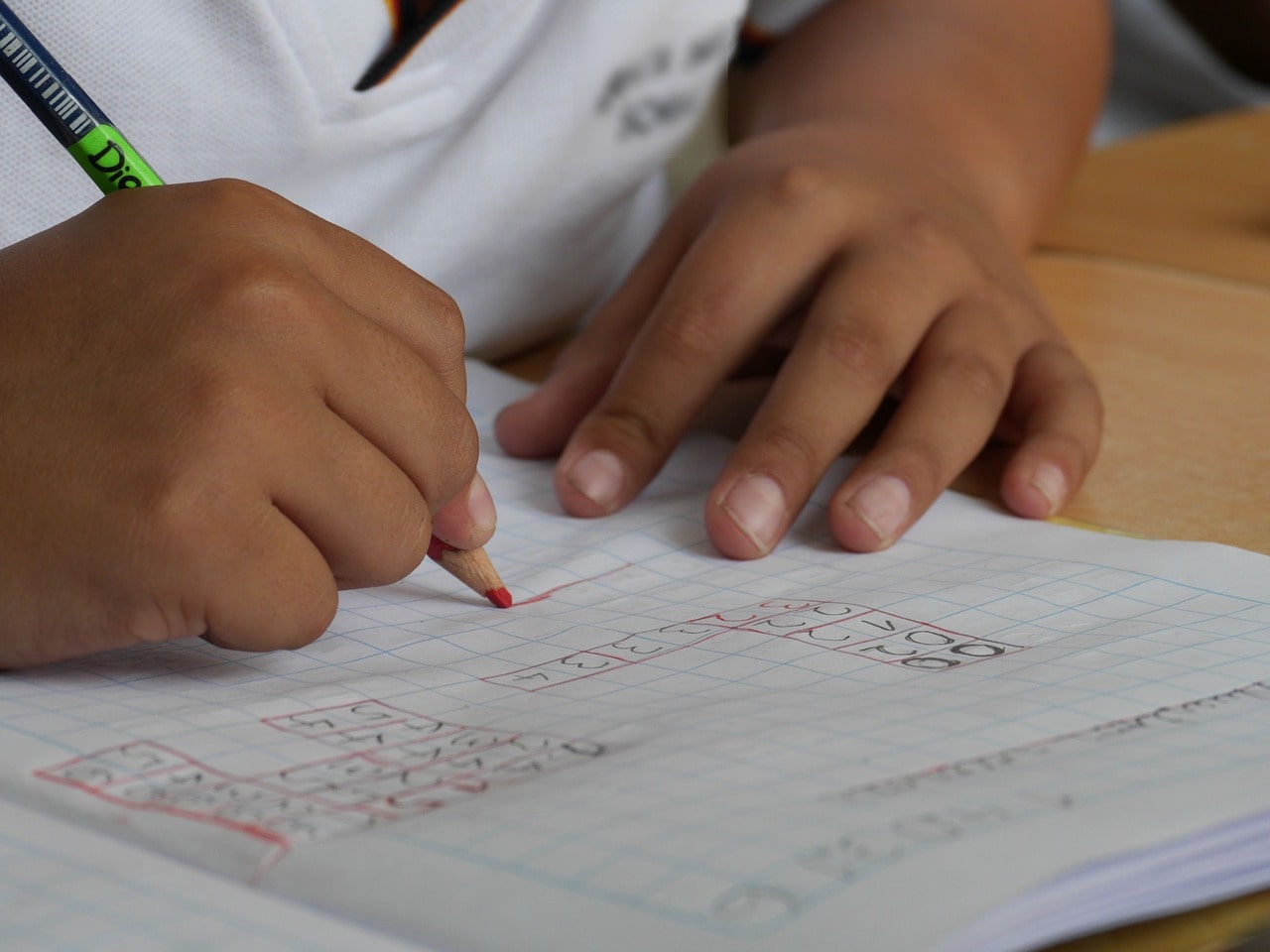
Are you the proud parent of a child who has been selected for the Gifted Education Programme (GEP)?
Or maybe you’re an anxious parent whose child will be going through the screening process for the GEP.
Perhaps, you’re simply wondering whether you should even attempt to place your child through the GEP screening tests or not.
Here, I’ll be sharing all you need to know about the Gifted Education Programme.
It’s history, the list of GEP primary schools, what your child should expect in the programme, the selection process and even my personal take on the GEP.
Don’t go running off to enroll your child in a GEP preparation course without first reading this piece thoroughly!
History of the Gifted Education Programme (GEP)
The Gifted Education Programme (GEP) was first introduced in 1984 by the Ministry of Education (MOE). Its introduction came at a time during which MOE was reforming its education system to better cater to a multitude of learning aptitudes.
The GEP is essentially an enrichment programme to nurture intellectually-gifted students, allowing them to reach their fullest potential.
In the months leading to the first GEP classes, a selection of primary and secondary school teachers underwent training to teach in the GEP. The selection processes were drawn up and finalised as a series of special tests to be taken at the end of Primary 3 and 6.
In September 1983, 40,000 Primary 3 students sat for the screening test, of which the best 100 were chosen to pilot the Primary 4 Gifted Education Programme at Raffles Girls’ Primary School and Rosyth School.
That’s an acceptance level of just 0.25%
On top of that, students who scored at least three A-stars in the PSLE were invited to take the selection exams. Among them, 100 students were chosen for the secondary-level GEP in Raffles Institution and Raffles Girls’ Secondary School.
Officially, the pioneer batch started their GEP classes in January 1984.
What happened to the GEP in secondary schools?

These days, the Gifted Education Programme is limited to primary schools.
That’s because with the introduction of the Integrated Programme (IP) in 2004, the post-primary school gifted programme saw a decline in the number of students enrolled.
Therefore, the MOE channelled gifted students to IP schools which ran the School-Based Gifted Education (SBGE), such as:
- Anglo-Chinese School (Independent)
- Dunman High School
- Hwa Chong Institution
- Nanyang Girls’ High School
- NUS High School of Mathematics and Science
- Raffles Girls’ School (Secondary)
- Raffles Institution (Secondary)
Nowadays, some GEP students also simply progress to the Integrated Programme, sans any special gifted programmes since IP itself offers a broad learning experience for academically-inclined students.
How your child can enrol in the GEP
Students are identified for the Gifted Education Programme in Primary 3, through a two-stage exercise: a screening in August and a selection in October.
All Primary 3 students who are enrolled in a Singapore government and government-aided school are eligible to go through the screening exercise. This screening exercise involves two papers, one for English Language and another for Mathematics.
Subsequently, students shortlisted for the selection stage will sit for three papers, this time English Language, Mathematics and General Ability.
Parents of successful students will be notified by schools, and these students will receive an official letter of invitation to join the primary school gifted programme in Primary 4.
The list of GEP primary schools
Not all primary schools offer the GEP. Instead, they are offered by just nine schools.
Here’s a full list of the GEP primary schools:
- Anglo-Chinese School (Primary)
- Catholic High School (Primary)
- Henry Park Primary School
- Nan Hua Primary School
- Nanyang Primary School
- Raffles Girls’ Primary School
- Rosyth School
- Saint Hilda’s Primary School
- Tao Nan School
Should your child accept the offer to join the GEP, he/she has to transfer to one of these GEP primary schools (if they are not already in one of them).
According to MOE, the Gifted Education Programme offered in all the schools listed above are “essentially the same” as they follow a standard curriculum.
Therefore, there’s no such thing as a GEP school ranking.
The main difference that students should be more concerned about when choosing between the GEP primary schools would be the school ethos and type of co-curricular activities that are offered.
What your child can expect from the GEP

Let’s say that your child has qualified for the Gifted Education Programme and will begin their GEP journey in Primary 4.
What can your child expect?
Well, if classes have been smooth-sailing so far, expect a few bumps here and there.
The purpose of the GEP is to harness your child’s full potential, so classes are more intensive, with teachers introducing more concepts and going at a faster pace. Topics are more advanced and the syllabuses are tackled more deeply and broadly.
In Primary 4, your child may have to change his/her learning habits as they’ll be placed alongside other gifted students.
Simple things like paying more attention in class would prove to be important.
The same goes for asking questions. If your child had posed minimal questions for the teachers in the past, it could be time to speak out in class and clarify doubts.
After what could be a tough adjustment year in Primary 4, your child will likely fare better in Primary 5 and 6.
In terms of integration with schoolmates outside of the GEP, three schools currently have form classes with a mix of gifted and non-gifted students to promote a broader social circle.
They are Rosyth School, Nanyang Primary School and Nan Hua Primary School.
If your child’s class is comprised exclusively of gifted students, this may change in the future but in the meantime, he/she will still have the opportunity to interact with schoolmates during co-curricular activities and school-wide activities.
What about the PSLE, then?
Here’s a huge disclaimer: GEP students may not necessarily be the top PSLE scorers.
GEP students have to go through both mainstream lessons and advanced classes, and much of the latter involves content that will not be tested during the PSLE.
In fact, your child will have less time to drill in the concepts that will be tested for the PSLE. Therefore, there’ll be no guarantee of stellar results.
All in all, however, the GEP is designed to be highly beneficial for your child.
Looking at the bigger picture, there are not many reasons to prioritise a higher PSLE score over the benefits of the GEP.
Should I enrol my child in a GEP preparation course?

Parents, please take note that MOE has advised strongly against enrolling your child in test-preparation activities such as a GEP preparation course.
Their rationale is that while such GEP preparation courses may be effective for achieving better results for the tests, it will not allow your child to be accurately assessed for his or her potential.
I agree with MOE.
I believe that students who do not pass this screening exercise are likely to be better off without it.
The GEP comes with extremely high demands, and kids who had to be trained to pass the selection process could ultimately succumb to stress and low self-esteem when struggling through the primary school gifted programme.
Ultimately, it could prove to be more damaging than beneficial.
In other words, don’t force it. If your child has the ability to thrive in the Gifted Education Programme, the screening exercise will identify him or her.
Otherwise, let your child focus on the PSLE.
If your child is already having tuition lessons for several subjects, that is enough. There’s no need to put your child through GEP preparation courses.
Parents, it’s natural to want the best for your child. However, understand that every flower blooms in its own time.
Even if your child doesn’t qualify for the Gifted Education Programme, he or she has every chance to succeed in future, academically or in other areas of life.
Criticisms of the GEP

All educational programmes have their pros and cons – and the GEP is no exception.
Along with that, there are also citizens who are happy to chip in with their thoughts and criticisms about educational programmes.
One of the most common criticisms of the Gifted Education Programme is that it breeds elitism.
This is indeed a valid concern. In my opinion, qualifying for the GEP is a major ego-booster for a child. How can it not, when it suggests that your child is “gifted” and somehow superior from the rest?
But… what can we do about this?
From the school’s end, they are working towards mixing mainstream and GEP students to reduce segregation. Beyond that, it is up to parents to instil the value of humility in their child and fend off all the bad things associated with elitism.
Another criticism is that the GEP is more likely to benefit children of affluent parents who have the resources to send their child to extra classes and GEP preparation courses.
Well, the education landscape in Singapore is marked by parents who are extremely keen to invest in their child’s education and get them ahead of their peers.
Haven’t you heard? Tuition is an industry worth S$1.4 billion in Singapore! With such a large percentage of students attending tuition, it’s no wonder that many students who made it into the GEP have taken tuition classes.
The causal link between affluence, tuition and GEP preparation courses for entry into the GEP, however, is not so clear.
What’s clear is that the GEP caters to the intellectually gifted.
This brings me to my next point, which is that I believe that it’s important to grasp the reason why the GEP was conceptualised in the first place.
These children have proven their exceptional intelligence through the strict screening process, and it’s a great benefit for them to be offered a curriculum that engages them more deeply.
While elitism and inequality are real problems in Singapore, ultimately the GEP has been designed to nurture talents and develop the full potential of exceptionally bright students.
Let’s keep this in mind and hope that in future, these bright students will offer significant contributions to society for the benefit of all.
